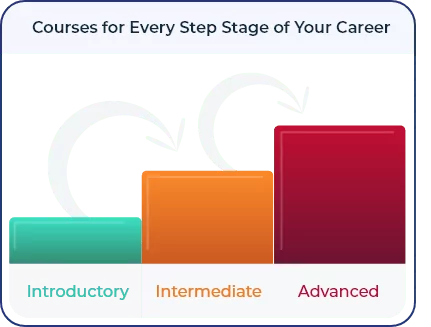Anyone who is working as a Project Manager will have considered getting a qualification for the role. This is because most of us became Project Managers based on our work in project teams and, having had to study hard for our previous roles, we feel a little uncertain about working in an area where we have not been proven in some sort of exam situation.
This line of thinking has Project Managers investigating the Project Management Institute’s Project Management Professional (PMP)® accreditation. On the surface this looks like an easy goal to achieve. All you have to do is study the Guide to the Project Management Body of Knowledge (PMBOK® Guide) and you will be prepared for the PMP® exam. This sort of thinking would work for the Certified Associate in Project Management (CAPM)® accreditation because that is a straightforward test of knowledge. However, the PMP® exam questions are mostly situational and worded in strange ways – knowledge alone is no guarantee of success.
On this page:
- Benefits of PMP® Exam Preparation Courses and Simulators
- Factors Affecting Preparedness for the PMP® Exam
- Conclusion
Benefits of PMP® Exam Preparation Courses and Simulators
As an Authorized Training Partner (ATP) for the Project Management Institute, we at Velopi will obviously recommend taking a PMI® Authorized PMP® exam preparation course. Guided by our PMP® certified trainers, you will become familiar with the key areas of concern for the PMP® exam setters. More importantly, you will get plenty of exposure to the style of question you will see in the real PMP® exam. For each knowledge area, we finish the lesson by offering a 10-question exam on the topic. These tests have to be done in a time limit which gives the same time-per-question as you will get in the full, four-hour PMP® exam.
Some students get really upset by these, especially when they fall for the little tricks the PMP® exam setters use. “Which of the following is not part of …” catches out a surprising number of students. Not reading the question properly means struggling to choose the right answer from three right answers. Another problem is not finding the correct answer among the multiple choices given. Here the PMP® question setter wants you to choose the best answer from the list.
But is doing a course which has samples of the PMP® exam questions enough? Sadly, it does not appear to be the case. Velopi provides unlimited access to our PMP® exam simulator. Here we offer Knowledge Area exams, similar to those provided at the end of each lesson of the course. This allows a student to assess their ability in weak areas and they help in guiding their study plans. But the main attraction of the simulator is the facility to take full-length PMP® exam-style tests.
These seem to provide the secret ingredient. We have found that most people who have attempted these PMP®-style exams and have got decent scores have gone on to pass the real thing and to gain PMP® accreditation. Our latest figures show a 95% success rate.
Factors Affecting Preparedness for the PMP® Exam
What is worrying though is that only one-third of our students have attempted our trial PMP® exams. Very few of those who opt not to take the simulator exams actually go on to sit the real PMP® exam in the end. This is a shame, but it reflects a lack of preparedness on the part of some students. Project Managers should be familiar with the concept of SMART goals. Obtaining the PMP® certificate in project management is a Specific goal; having the certificate is the Measure.
However, just like the SMART definition itself, things start getting into trouble when we study the ART categories. The A can be assignable or achievable or even acceptable or aspirational! If we use the “assignable” meaning, the only person who can do this is you. In other words, you will have to study for this and make the time to prepare for the PMP® exam experience. Unfortunately, many Project Managers make the time for the course, but do not appreciate that there will be demands on their time up to and including the day of the PMP® exam itself.
Again, “R” can be reasonable or relevant. “Reasonable” is a good interpretation for our purposes – if you are married, with children or are caring for elderly relatives, do you have the free time to do this? Even if all your free time is your own, how do you feel after a day’s work? Is brain exercise the last thing you want to do? Does studying project management bring back all the strife you have gone through during the day? Are you prepared to schedule four-hour blocks of time to do simulated PMP® exams?
Finally, there is the “T” factor. Although there are different words used, all agree that there needs to be a time frame on this goal. You need to decide how much you can study in a typical week and you need to schedule the exam so that the PMP® exam preparation course material is still fresh in your mind but, at the same time, you have had time for it to sink in and for you to do the simulated PMP® exams.
Conclusion
Velopi provides all the support you need to succeed in your bid to obtain PMP® certification. But remember that the most important piece of the jigsaw is you. So think carefully, decide when you are ready to do this and then please visit our training page or contact us directly to embark on your PMP® journey.

















